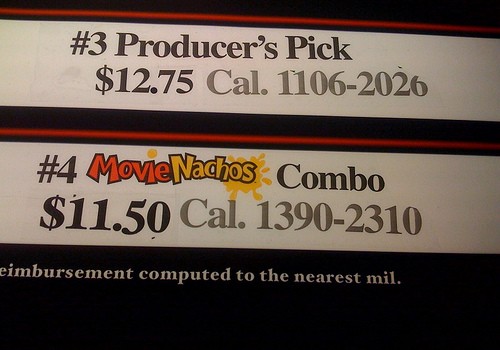
You Need To Count Calories If You're Going To Lose Weight Successfully
You don't need to count calories to the individual calorie, but you need to develop a grasp of the caloric content of foods relative to your needs so you can manage portion size, and measure your hunger against your actual energy needs. So that means making a habit of examining the labels of the foods you eat and comparing them to the amount you know you need to be eating, and thinking, for instance. that if you've already eaten 2,000 calories today, you're probably not really hungry. This works the other way round too: if you've eaten as much as you're supposed to need but you still feel extremely hungry you can look back over your last few days and think, 'was it that training session? Maybe that's why I'm hungry...' Without a fairly accurate idea of how many calories you eat you can't do this.
- Important notification about information and brand names used in this slideshow!
- Photo courtesy of Jason Tester Guerrilla Futures by Flickr : www.flickr.com/photos/streamishmc/3151535807/
- www.today.com/id/13897378/ns/today-today_health/t/weight-loss-myths-can-ruin-your-diet/#.UZX-tLXX898

Don't Exclude Carbohydrates Completely Even If Your Goal Is Rapid Weight Loss
Carbohydrates are useful as a fuel. There's no other purpose for eating carbohydrates per se, but foods that contain carbohydrates are often also a source of dietary fibre, which accelerates digestive transit and may assist in reducing the absorption of lipids (fats) from the digestive tract. Carbohydrates are also important because if you eat too little carbohydrate food, the body begins to convert the protein in your diet to sugar and ammonia. When this happens, the protein is no longer available to build or rebuild muscle and if you're exercising, then you need your protein for recovery and growth. Better to run your metabolism on carbohydrates and use your protein intake to construct muscle. The issue with carbohydrates comes when we eat too much of them, or we eat them in the wrong forms. Carbohydrates are like trains, and the carriages are sugars. Short-chain carbs are sugars, long chain sugars are carbohydrates, and sugars don't require much breaking down before they're absorbed. Consequently eating short chain carbs means dumping a large amount of sugar into the bloodstream all at once. This causes a spike in blood sugar, followed by sugar uptake and rebound hypoglycaemia, in which blood sugar falls sharply...
Carbohydrates are useful as a fuel. There's no other purpose for eating carbohydrates per se, but foods that contain carbohydrates are often also a source of dietary fibre, which accelerates digestive transit and may assist in reducing the absorption of lipids (fats) from the digestive tract. Carbohydrates are also important because if you eat too little carbohydrate food, the body begins to convert the protein in your diet to sugar and ammonia. When this happens, the protein is no longer available to build or rebuild muscle and if you're exercising, then you need your protein for recovery and growth. Better to run your metabolism on carbohydrates and use your protein intake to construct muscle. The issue with carbohydrates comes when we eat too much of them, or we eat them in the wrong forms. Carbohydrates are like trains, and the carriages are sugars. Short-chain carbs are sugars, long chain sugars are carbohydrates, and sugars don't require much breaking down before they're absorbed. Consequently eating short chain carbs means dumping a large amount of sugar into the bloodstream all at once. This causes a spike in blood sugar, followed by sugar uptake and rebound hypoglycaemia, in which blood sugar falls sharply following a spike. It also causes fat to be laid down and decreases the body's sensitivity to insulin. All of which is why we don;t eat white bread with every meal and avoid making chocolate into a food group. But eating long-chain carbs to provide energy is a good idea. Eating them with protein containing foods slows their absorption, but there are plenty of grains and starchy vegetables that are a healthy part of a weight-loss diet.
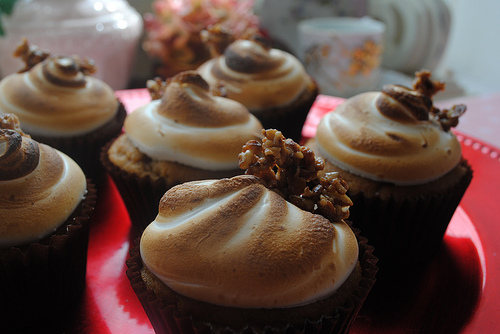
You Can Eat Sweets - Just Don't Mistake Them For Food
Some dieting advice begins with a list of things you should totally avoid. And it's true: sweets aren't good for you. Anything with a high sugar content is bad and anything with high sugar and fat together is even worse. But there's a trick to reducing your intake of sweets radically and it doesn't have to mean total abstinence. The 'taste thermostat' is your body's idea of what's subjectively 'salty,' 'sweet,' and so forth. Its frame of reference is very short, only about two to six days, so you can reset it by deliberately avoiding sweets for that long. Think of sugar in tea or coffee. If you usually have three, as I used to, when you cut straight to none tea tastes bitter and unpleasant. Then you get used to it. Putting even one sugar in your tea makes it taste strange, while three makes it sickly and undrinkable. Yet a week ago I couldn't drink it any other way. Only my perception has changed and yours will do likewise: you can cure a sweet tooth and it doesn't take that long. The other method is to use very small portions. Think about it: your tongue can only taste...
Some dieting advice begins with a list of things you should totally avoid. And it's true: sweets aren't good for you. Anything with a high sugar content is bad and anything with high sugar and fat together is even worse. But there's a trick to reducing your intake of sweets radically and it doesn't have to mean total abstinence. The 'taste thermostat' is your body's idea of what's subjectively 'salty,' 'sweet,' and so forth. Its frame of reference is very short, only about two to six days, so you can reset it by deliberately avoiding sweets for that long. Think of sugar in tea or coffee. If you usually have three, as I used to, when you cut straight to none tea tastes bitter and unpleasant. Then you get used to it. Putting even one sugar in your tea makes it taste strange, while three makes it sickly and undrinkable. Yet a week ago I couldn't drink it any other way. Only my perception has changed and yours will do likewise: you can cure a sweet tooth and it doesn't take that long. The other method is to use very small portions. Think about it: your tongue can only taste what it touches. If I eat a huge piece of cake in massive bites, wolfing it down, my tongue only touches the outside of those mouthfuls: there's a big piece of cake I never taste. If you eat smaller portions with smaller mouthfuls and carefully focus on the taste you'll find you don't want as much. As you lose your sweet tooth your other foods will taste better too. Chances are their flavors are warped by a too-high taste tolerance for sugar, so everything without added sugar tastes sour. The bottom line? Sweets are a taste treat, not a food group. Treat them that way and you'll be fine.
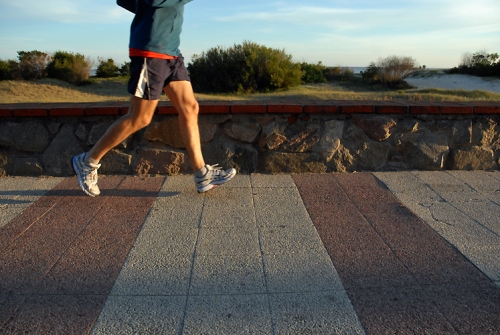
Exercising Alone Isn't Enough - You Can't Out-Train A Bad Diet
At its base the equation that governs body weight is very simple: it's just calories in vs. calories out. If they're the same number, you'll stay the same weight. use more than you eat and you'll lose weight, eat more than you use and you'll gain weight. If your training is perfect in every way but your diet consists of eating your bodyweight every day in donuts and soda, what do you think will happen? Your diet should be designed like your exercise program, to support your goals and take your present circumstances into account. You should start with caloric intake and move it up and down in 250-calorie increments, the size of a small snack (or a large coffee from a chain, watch out for that) until you're making progress. But check for nutrients too: shoot for plenty of high quality protein, don't cut out too much fat and eat vegetables and fruit a lot. The antioxidants will help your body recover from training and the other vitamins help you absorb the macronutrients from your foods. Remember, you can't out-train your diet.
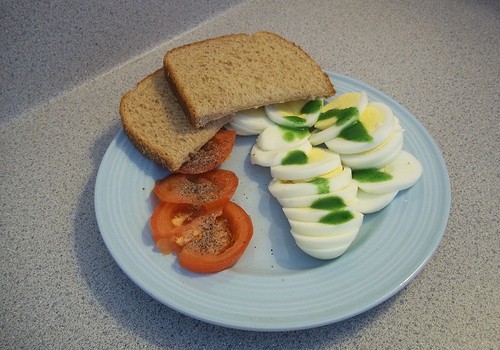
Get A Snack Between Meals - Provided It's A Healthy One
Eating patterns vary from person to person. Some pro coaches and dietitians advise eating every three hours, some advise eating only the traditional three meals a day or even skipping one every now and again. How you respond to an eating plan will vary depending on how you train, what else you do and your body type. But over time you'll learn to recognize when you're actually hungry, and when you are there's nothing wrong with snacking. But snack smart. Ideal snacks need to be easy, or when the time comes you'll just ignore your carefully made plans and eat something from a vending machine that comes with a free insulin syringe. A snack should be high in either fibre or protein, so that its energy content is absorbed more slowly. Ideal snacks are things like apples or a couple of slices of ham. Not being full isn't the same as being hungry, but if you feel genuinely low on energy have a snack. Expect that it will happen and make it part of the plan!
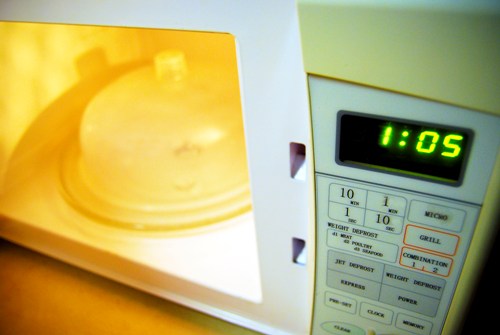
You Can Use Microwave Cooking To Make Healthy Eating Easier And More Convenient
Using the microwave is not a crime. It doesn't make your food radioactive. You can cook foods like vegetables, particularly, way faster and easier in the microwave; just cover them in water and put them in (in a microwave proof dish, of course). You can also use it to accelerate the painfully slow process of thawing out foods though with some meats, especially poultry, it's better to use the fridge; when some parts warm up faster than others, the germs in them start to breed. The best use is for side dishes, snacks and warmovers. With food that doesn't contain meat or rice (rice needs to be treated careful if you don't want food poisoning) you can just toss them in the microwave for a couple of minutes and your meal or snack is ready. The microwave isn't the best means of cooking but I used to work in a gourmet restaurant and we used one there. And anything that makes your diet plan more convenient makes you more likely to stick at it.
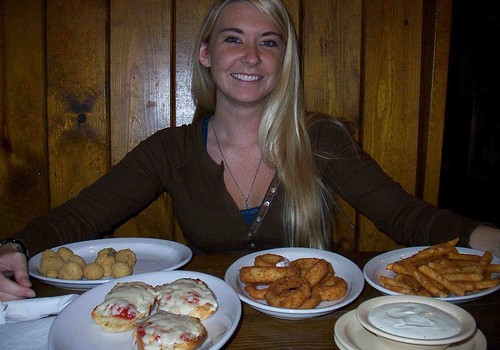
You Can Eat At Night, Despite The Scare Stories - You'll Still Lose Weight
The stories about when you should and shouldn't eat have gotten a lot of press and they've distorted the true picture. First in importance is how much you eat, then what you eat. When trails a distant third and the time of day is fairly unimportant. For people with slow metabolisms, it might be a good idea to monitor your intake of fats and carbs at night. That's because if you eat them and go to bed, they are more likely to be laid down as fat than used as energy. But if you're eating right and training right, they'll be used to grow new muscle and repair existing tissue, or to replenish muscular glycogen stores. Carbohydrates can also make you sleepy. The bottom line? If every day you eat what you need, it doesn't really matter when you eat it.

Dairy Products - The Ups And Downs Of Milk, Cheese And Yoghurt
Dairy products are defined by where they come from: they're all cow produce. But they all have different nutritional profiles. Some French cheeses are 60% fat by weight; I'd say you should eat them in moderation. Skimmed milk is very low in fat, as low as 0.1% in some cases; yet it delivers both calcium and protein in large quantities as well as a range of sugars and fats. Even full fat milk is only 5% fat, so it doesn't need to be avoided totally unless your body type calls for it. And yoghurt can have a lot of health benefits. If you eat live yoghurt, where the bacterial cultures that fermented the milk are not killed before the product is sold, they can improve your gut health. The yoghurt itself offers many of the same benefits as milk but in a more concentrated form. It's also much lower in lactose than milk, meaning borderline lactose intolerant people can sometimes eat yoghurt but not drink milk. Don't make dairy products the foundation of your diet, but don't feel you have to exclude them altogether - unless you are lactose intolerant, of course.
- Important notification about information and brand names used in this slideshow!
- Photo courtesy of U.S. Department of Agriculture by Flickr : www.flickr.com/photos/usdagov/9042954477/
- www.weightlossresources.co.uk/diet/diet_tips/myths_facts.htm
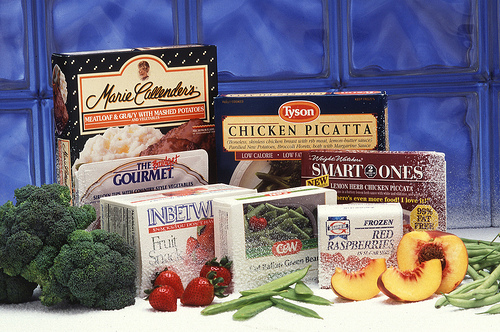
Frozen/Canned Food Can Contain As Much Vitamins As Fresh Ones
Canned food is almost a synonym for ruined food. But canned food can still offer great nutritional benefit. And frozen foods are even better! In fact, almost the best piece of dieting equipment you can buy is a freezer. Foods that are flash frozen are frozen before the ice crystals can grow big enough to burst the cell walls. While the process doesn't work too well with meats, tending to make fish feel a bit like it's already been cooked once, for fruit and vegetables it's extremely effective and means that none of the vitamin C, the most vulnerable to processing, is lost. And canned fruit and vegetables can be high in nutrients too. If they aren't cooked or processed before canning, they often have more nutrients than fresh varieties which have endured several days of transportation to get to the shelf!
- Important notification about information and brand names used in this slideshow!
- Photo courtesy of U.S. Department of Agriculture by Flickr : www.flickr.com/photos/usdagov/8455839013/
- www.weightlossresources.co.uk/diet/diet_tips/myths_facts.htm

Organic Vs. Non-Organic Foods: What's The Difference And What Difference Does It Make?
Organic foods are grown according to a strict set of rules. Pesticides aren't used, neither are preservative chemicals and chemical food additives. If it makes you feel any safer, they aren't irradiated either. Non-organic foods aren't subject to these rules. They're grown in pesticide-rich environments and coated with preservative chemicals. Sometimes that doesn't make much difference but often it means the food itself has chemical additives still on it or in it. Of all the corn grown in America, 88% is genetically modified - not to resist pests, but to resist pesticides! That means that the farmers can use yet more pesticides without it killing the crops. There's little evidence that organic diets are better or worse for you, and a 2012 metastudy of the evidence concluded that it was... inconclusive, and likely to remain so. So how can you choose between organic and non-organic? I do it like this: If it's meat, get organic if you can. That way you'll avoid the doses of hormones and prophylactic antibiotics fed to factory-farmed animals. If it's vegetables and fruit, do you eat the skin? Oranges and bananas, you usually don't eat the skin, but apples you do. So skimp on the...
Organic foods are grown according to a strict set of rules. Pesticides aren't used, neither are preservative chemicals and chemical food additives. If it makes you feel any safer, they aren't irradiated either. Non-organic foods aren't subject to these rules. They're grown in pesticide-rich environments and coated with preservative chemicals. Sometimes that doesn't make much difference but often it means the food itself has chemical additives still on it or in it. Of all the corn grown in America, 88% is genetically modified - not to resist pests, but to resist pesticides! That means that the farmers can use yet more pesticides without it killing the crops. There's little evidence that organic diets are better or worse for you, and a 2012 metastudy of the evidence concluded that it was... inconclusive, and likely to remain so. So how can you choose between organic and non-organic? I do it like this: If it's meat, get organic if you can. That way you'll avoid the doses of hormones and prophylactic antibiotics fed to factory-farmed animals. If it's vegetables and fruit, do you eat the skin? Oranges and bananas, you usually don't eat the skin, but apples you do. So skimp on the oranges to pay for the apples. Organic foods can be more expensive - half as expensive again as the alternative, or more in some cases - but then again, 33% (half as much again, in fact) of fruit and vegetables bought by American consumers ends up in landfill. Eating to a plan, choosing better foods and being sure to actually eat them once we've bought them would actually save many of us money even if we bought more expensive foods.


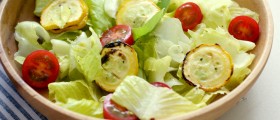
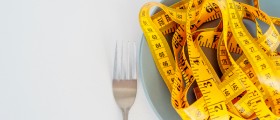
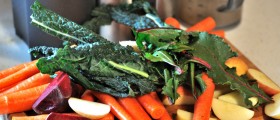
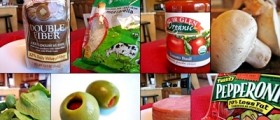
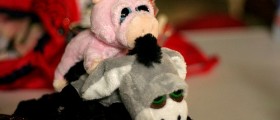
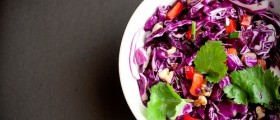

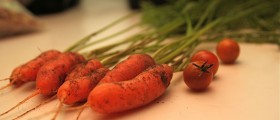
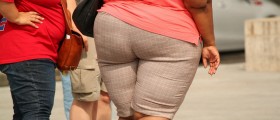



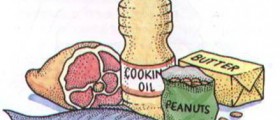
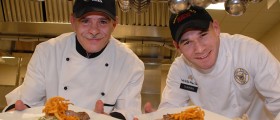

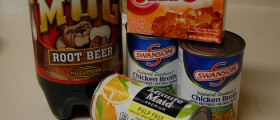
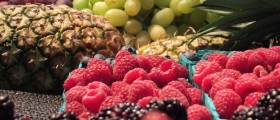
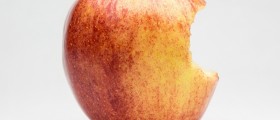
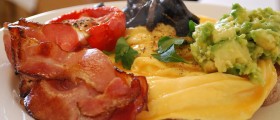
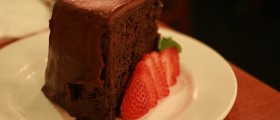
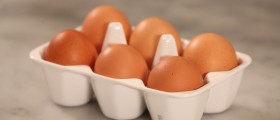
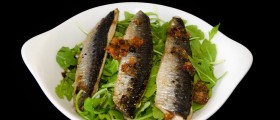
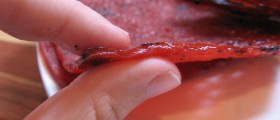
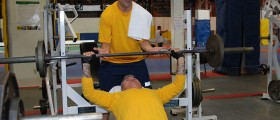
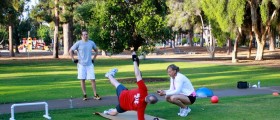
Your thoughts on this
Loading...